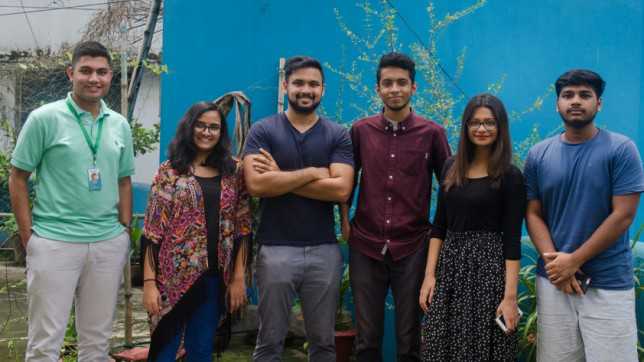Project Trishna- ensuring safe water, one step at a time

Image collected
What began as five friends sitting in a cafeteria at school, talking about wanting to do something to help their community, has become a powerful force for social change. They started out by distributing warm clothing to people in need, during a particularly harsh winter, with the help of volunteers from the community. Today, almost 6 years after their first campaign in 2013, Footsteps has taken up Project Trishna, and the monumental task of ensuring safe, drinkable water for everyone.
Why is this problem important? Let us look at some facts which put into perspective how big of an issue safe drinking water is and why Project Trishna is so vital to the community. According to research conducted by Footsteps, 21 million people in Bangladesh lack access to safe drinking water, 6 million of them in Dhaka alone. 97% of the processed jar and tap water in Bangladesh is contaminated with the E. Coli bacteria (a strain of this bacteria is responsible for diarrhoea and various other diseases). Though significant progress was made in providing people access to water the last few years, access to safe drinking water is still low at 34.6 percent, according to UNICEF. An approximated 50,000 children in Bangladesh die from water-borne diseases every year.
Co-founder and current President of Footsteps, Shah Rafayat Chowdhury, had the idea for project Trishna while on a rickshaw ride, when his rickshaw puller stopped to drink water from a nearby public water filter. It struck a chord in Rafayat’s mind. When he thought about it, he realised he could scale this idea into something much bigger. Initially the idea was to use corporate funding to provide similar filters all over the city, and people would know by the corporate logo who was responsible. The companies would be bettering their own goodwill and enhancing their image within the community, and the community would have access to safe drinking water; win-win. It seemed like a simple idea. It was only when trying to implement it did they discover that the problem of providing safe drinking water to an entire city was more complex and multi-dimensional than they had initially anticipated. Once in the field, many new obstacles began presenting themselves, which they could not foresee. Project Trishna thus became their main focus.
The first problem they encountered was the filtration system itself. Imagine trying to scale the technology used for a family of 5 and use it to provide drinking water for 500 people. It was also not as simple and straightforward as providing filters in different areas. “Once we got there, we found out that the problem of water is unique to each area, according to the quality of water already found in the area, and the demand,” says Rafayat. Gulshan for example, would not have the same water needs as Puran Dhaka, and using the same cookie cutter solution everywhere would be a waste of resources, at the least. There was also the case of maintenance, and how often. Areas with a higher iron content in their water would need more frequent tending to than areas with less.
Another issue of implementing such a large scale project was, of course, securing funding. While Footsteps initially began funding projects through CSR (Corporate Social Responsibility) and a bulk of their funds still come from corporate sponsorships, they needed something more sustainable in the long term. As such, they initiated various creative campaigns such as #wateryouwearing, which sold t-shirts to raise funds for Project Trishna. Another campaign was #EatOutHelpOut which partnered with local food business, who agreed to donate a certain percentage of the bill towards raising funds for future projects. #Kickforsix is another campaign kicking off (pun shamelessly intended) in August, which calls for corporate teams to ‘kick for goal 6’ (in reference to SDG 6: “Ensure availability and sustainable management of water and sanitation for all”).
Today, Footsteps provides a variety of water filtration systems (UV and RO), as well as regular maintenance based on the specific needs of each area. They have implemented over 80 water systems, at more than 18 sites (numbers may have grown since). The team have been in talks with Md. Atiqul Islam, mayor of Dhaka North City Corporation, about the scope of Project Trishna. Rafayat hopes to expand Project Trishna to other cities as well. He dreams of one day making Footsteps one of the largest NGO’s in the world, “not in terms of finances, but in terms of impact- how many people’s lives we can change for the better.”
Source: https://www.thedailystar.net
Tags :
Previous Story
- Jute Goods Research and Design Centre launched as...
- 7 entrepreneurs win Colors Platinum Business Women Awards
- Stocks continue to bleed, Tk 23,142cr lost in...
- iPhone users joining the dark side; Android adoption...
- Pharma exports soar 26pc
- As the controversy mounts, Facebook still seems to...
- White House to host meeting with tech executives...
- Nepal for stronger connectivity with Bangladesh